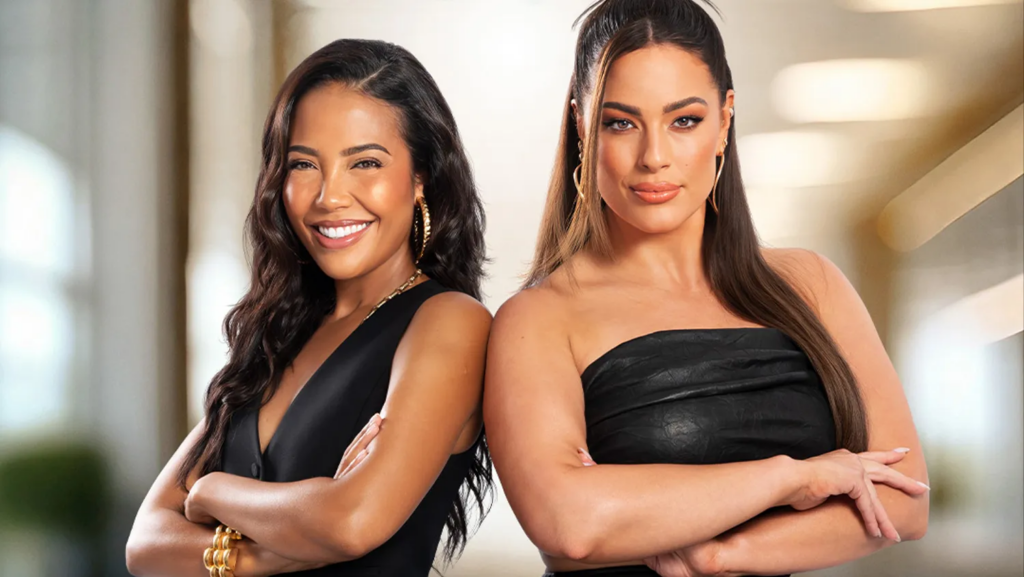From Kitchen Counter to Industry Pioneer
What started as a weekend side hustle blending essential oils and packaging home-made stress relief kits quickly grew into one of the most talked-about wellness brands in America. Today, Emma Reynolds, the dynamic founder and CEO of Lunaria Wellness, is at the forefront of a movement that’s making mental, emotional, and holistic well-being more accessible, inclusive, and science-driven than ever before.
With a cult following among Gen Z, multiple national retail partnerships, and a product line that bridges herbal tradition with modern neurobiology, Reynolds has proven that wellness isn’t a luxury—it’s a necessity.
“I wanted to create something for people like me,” Reynolds says, “those who were burnt out, overwhelmed, and unsure how to take care of themselves.”
Chapter 1: Humble Origins and the Rise of Lunaria
Emma Reynolds was never supposed to be a founder. A marketing coordinator at a mid-sized tech firm in Seattle, she used her nights and weekends to research adaptogens, aromatherapy, and plant-based remedies to help manage her own anxiety and fatigue.
In 2018, she began selling her creations—hand-poured calming balms and sleep mist sprays—on Etsy under the name Lunaria, a nod to the silvery lunar-shaped seed pod known for symbolizing honesty.
By 2020, fueled by word of mouth, a surge in interest during the pandemic, and endorsements from niche wellness influencers, Lunaria had:
- Surpassed $500,000 in annual online sales
- Expanded into subscription wellness boxes
- Amassed a devoted community on Instagram and TikTok
“It wasn’t about pretty packaging—it was about helping people feel grounded again.”
Chapter 2: Turning Passion into a Scalable Business
In 2021, Reynolds took a leap. She quit her job, raised a $2.4 million seed round, and formally launched Lunaria Wellness Inc., focusing on product research, ethical sourcing, and distribution scalability.
Her mission: bridge the gap between traditional herbal practices and evidence-based wellness.
She brought on:
- A neuroscientist to consult on product development
- A supply chain expert to oversee sustainable sourcing
- A diversity officer to ensure inclusive branding and outreach
The results? A full product line of herbal elixirs, functional gummies, focus sprays, and recovery kits, sold in Whole Foods, Target, and over 1,100 independent wellness retailers nationwide.
Chapter 3: Innovation with Intention
What sets Lunaria apart is its science-backed approach and commitment to accessibility.
Product Innovation:
- MoodMap: A mood-tracking app that connects with Lunaria’s supplements to provide personalized regimens
- NeuroCalm+: A best-selling adaptogenic formula targeting stress-induced inflammation
- SleepFlow™ Kit: A smart aromatherapy device paired with ambient light and breathwork guides
Access Initiatives:
- Tiered pricing for low-income users via Lunaria’s “Wellness For All” fund
- Distribution partnerships with college counseling centers and nonprofits serving BIPOC communities
- Monthly virtual circles hosted by therapists and cultural wellness leaders
“We’re not here to be bougie. We’re here to be real—and radically helpful.”
Chapter 4: Wellness Beyond the Mainstream
Reynolds is critical of the mainstream wellness industry, which she says has long catered to “thin, white, affluent women while ignoring cultural diversity, chronic stress, and economic trauma.”
Under her leadership, Lunaria actively:
- Amplifies BIPOC healers and practitioners through a contributor program
- Partners with clinics in underserved areas for wellness integration pilots
- Avoids “toxic positivity,” instead promoting emotional resilience and real rest
This vision has attracted attention from investors, researchers, and therapists eager for more grounded, culturally aware wellness alternatives.
In 2024, Lunaria was awarded Best Social Impact Startup at the MindfulTech Awards, and Reynolds gave a keynote titled “Healing Without the Hashtag.”
Chapter 5: Challenges in a Booming Market
As the U.S. wellness industry grows—now worth over $1.8 trillion—Lunaria faces both opportunities and headwinds.
Competitive Pressure:
With giants like Goop, Calm, and even Amazon expanding into wellness products, small brands often struggle to retain authenticity.
Regulatory Scrutiny:
The increasing popularity of herbal and neuro-wellness products has drawn FDA attention. Reynolds has preemptively invested in clinical testing and transparent labeling.
Scaling Without Losing Soul:
From handcrafted items to mass production, Lunaria has walked a tightrope. Reynolds has maintained a community feedback loop and monthly founder Q&As to keep consumer trust strong.
“The moment we stop listening, we stop healing.”
Chapter 6: The Power of Community
Lunaria’s most powerful asset may not be its products—but its community.
With over 3 million followers across platforms, a thriving Discord wellness forum, and monthly digital events with licensed professionals, Lunaria isn’t just a brand. It’s a movement for healing, fueled by connection, vulnerability, and accountability.
Reynolds credits the community for:
- Co-creating several product lines via online votes
- Naming the “BraveRoot” adaptogen blend
- Pushing for menstrual wellness offerings and trauma-informed packaging
And her transparency—posting founder notes, failures, and personal struggles—has made her a role model in a space often dominated by curated perfection.
Chapter 7: What’s Next for Emma Reynolds and Lunaria
Looking ahead, Reynolds plans to:
- Launch Lunaria Labs, a research incubator for community-submitted health questions
- Open three brick-and-mortar wellness “sanctuaries” in underserved urban areas
- Collaborate with schools and employers on mental health access kits
- Advocate for wellness equity policies at the federal level
She’s also in the early stages of writing a book: Healing Is Messy: A Founder’s Guide to Starting Where You Are.
“You don’t need to be perfect to take care of yourself. You just need to start. That’s what I did.”
Conclusion: More Than a Business—A Blueprint for Better Living
Emma Reynolds didn’t set out to become a startup icon. She set out to make healing a little less lonely. And in doing so, she’s redefined what it means to build a wellness brand: one that’s community-led, culturally mindful, emotionally intelligent, and scientifically responsible.
In a world that often profits from burnout, Reynolds is building a business that reminds people they’re already enough—and they deserve to feel better.


